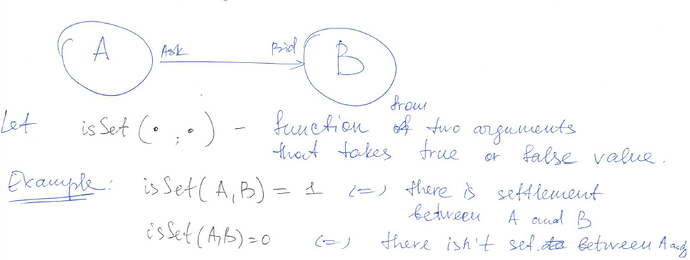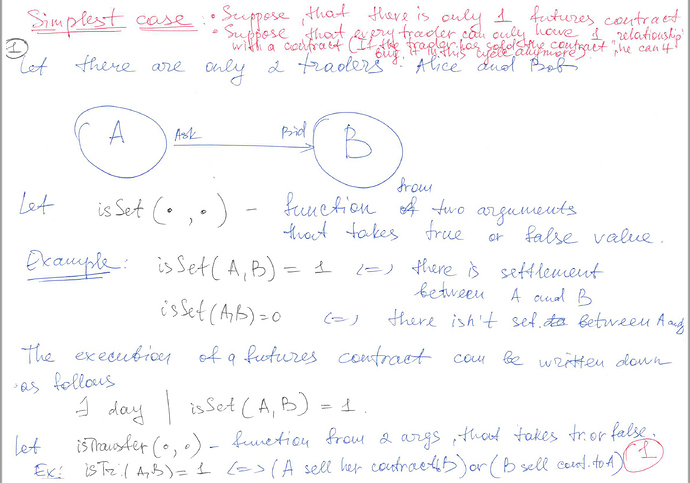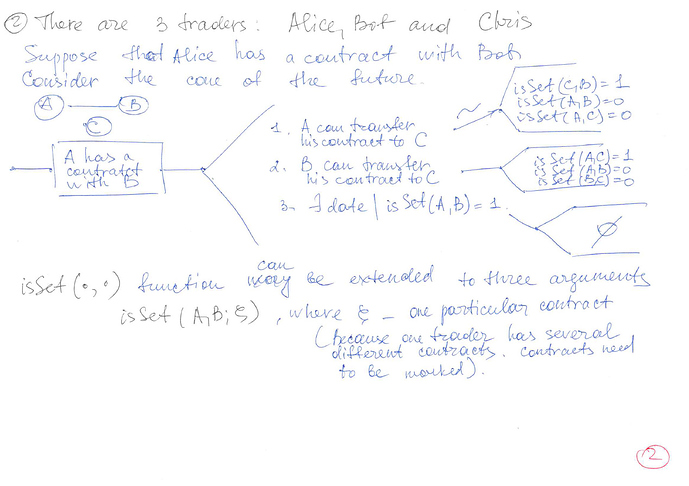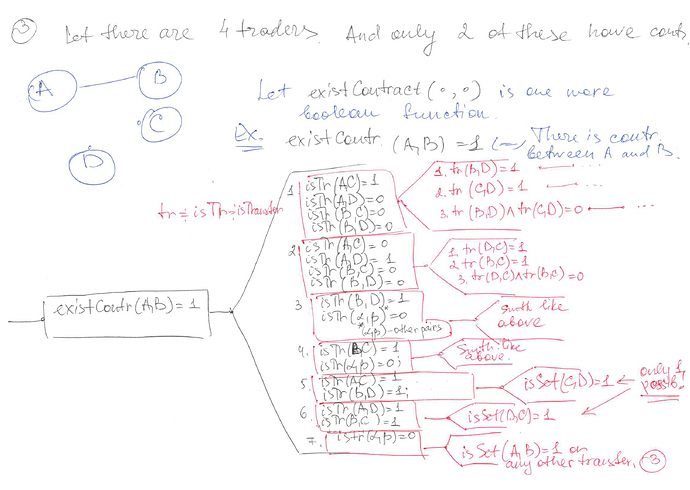DEX predicates + OVM
On this call, I would like to discuss OVM and predicates, that we need for DEX futures implementation. I’ve got some writing notes, that I will share with you along with Ivan, who actively participated in this research.
We will provide additional comments on the call. In the future I will make a post about that.
Simplest Case:
- Suppose that there is only 1 futures contract
- Suppose that every trader can only have 1 “relationship” with a contract (if the trader has sold the contract, then he can not buy this contract in this cycle anymore)
So we need to define 3 predicates:
isTransfer (A , B)existContract (A , B)isSet(A , B , Condition)
Scenario 1
We assume that there are only 2 traders: Alice and Bob
Let isSet ( . , . ) - function from two arguments that takes true or false value.
Example:
isSet (A, B) = 1 -> there is settlement between A and B
isSet (A, B) = 0 -> there is NO settlement between A and B
The execution of a futures contract can be written down as follows:
There is a day, when - isSet (A, B) = 1
Let isTransfer (. , .) - function from 2 arguments, that takes true or false.
Example: isTransfer (. , .) =1 -> (A sells her contract to B) or (b sells his contract to A)
Scenario 2
There are 3 traders: Alice, Bob and Chris. Suppose that Alice has a contract with Bob
Consider the core of the future A has a contract with B
With OVM we can limit variants of possible future:
This could be a great way of creating DEX. If there are supplemented, of the logic of DEX can be described in the predicate language.






